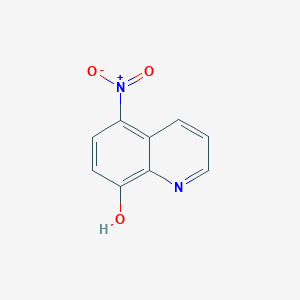Scientists develop new genetic database gnomAD could help tackle many rare diseases
-
Last Update: 2020-06-15
-
Source: Internet
-
Author: User
Search more information of high quality chemicals, good prices and reliable suppliers, visit
www.echemi.com
Recently, scientists from the Massachusetts Institute of Technology, Harvard University and Imperial College London have developed the world's largest open database of DNA genetic mutations, some of which can cause human diseaseIn seven landmark articles, the researchers described the database, the gnomAD, Genome Aggregation Database, which included information from more than 140,000 people worldwideResearchers describe how using gnomAD reveals unknown genetic mutations that previously induce diseases, while also providing potential drug targets for the treatment of a variety of human diseases, such as Parkinson's diseaseResearcher SJames Ware says reading the genome is now a routine work in scientific research and health care, but there may be huge challenges in understanding what our body's DNA is written and how to use this information to improve the health of patientsGnomAD resources have proven to provide researchers with valuable clues as to which genes are important to human health and disease, and which mutations in genes can cause problems, and the database has now been widely used in gene testing laboratories around the world; Using gnomAD's resources is a huge undertaking, with more than 100 research teams now sharing data from more than 140,000 people, and this collaboration and sharing mechanism can help accomplish a job that no single team can accomplishGenes control the body's instructions to make all proteins, and changes in the DNA sequences that encode these genes can lead to genetic diseases, and large-scale genetic sequencing research could provide researchers with an opportunity to analyze the effects of genetic mutations, which could provide new ideas and insights into the development of human organism biology and diseaseBy looking at the large number of individuals in the gnomAD database, the researchers were able to find which genes were frequently destroyed and which were rarely altered; if the genes of healthy people were rarely disturbed, that would mean that changing those genes could cause disease, and in the latest study, researchers found a total of 443,769 predicted functional mutations, far more than previous genetic databasesIn one of the studies, researcher Nicky Whiffin and others explored the effects of DNA mutations in areas of the genome that act as "control boards" and how to manage the proteins produced by these genes that trick host cells into reading genes at the wrong sites, but have not been fully studied before; And can pinpoint the mutations that induce a particular disease, one of which is the neurofibromatoma induced by these types of DNA changes, which is a very rare disease that promotes tumor formation in neural tissue'At the moment, we only know that genetic mutations can lead to rare diseases in about half of all cases, so many patients and their families don't know what causes their pain, ' said researcher Suiffin, who used the new genetic library to tell some patients about the genetic causes of their disease, which may also provide new clues and ideas for developing individualized treatmentsIn the second study, researchers used the gnomAD database to reveal potential treatments for future safe treatments for human Parkinson's disease, focusing on a mutation in a gene called LRRK2, which increases an individual's risk of developing Parkinson's disease, perhaps by affecting the function of nerve cells, and initial animal studies have shown that blocking the function of the defective LRRK2 protein may lead to lung, liver and kidney damageUsing information from the genetic mutation database, the researchers found that the LRRK2 functional deletion mutation does not induce severe organ dysfunction in the body, which may be good news for patients with Parkinson's disease and for pharmaceutical companies that are developing drugs to fight LRRK2 through clinical trials'Large genetic databases are increasingly giving us an idea of the health effects of specific drugs, and if we see that genetic mutations that reduce the body's protein levels in the natural state do not cause serious illness, we can be more confident that it may be safe to target the protein for disease treatment,' said researcher WhiffinLater researchers will continue to delve into the gnomAD database to find new clues and new ideas for treating rare diseasesThis article is from Bio Valley, for more information, please download Bio Valley APP (
This article is an English version of an article which is originally in the Chinese language on echemi.com and is provided for information purposes only.
This website makes no representation or warranty of any kind, either expressed or implied, as to the accuracy, completeness ownership or reliability of
the article or any translations thereof. If you have any concerns or complaints relating to the article, please send an email, providing a detailed
description of the concern or complaint, to
service@echemi.com. A staff member will contact you within 5 working days. Once verified, infringing content
will be removed immediately.







